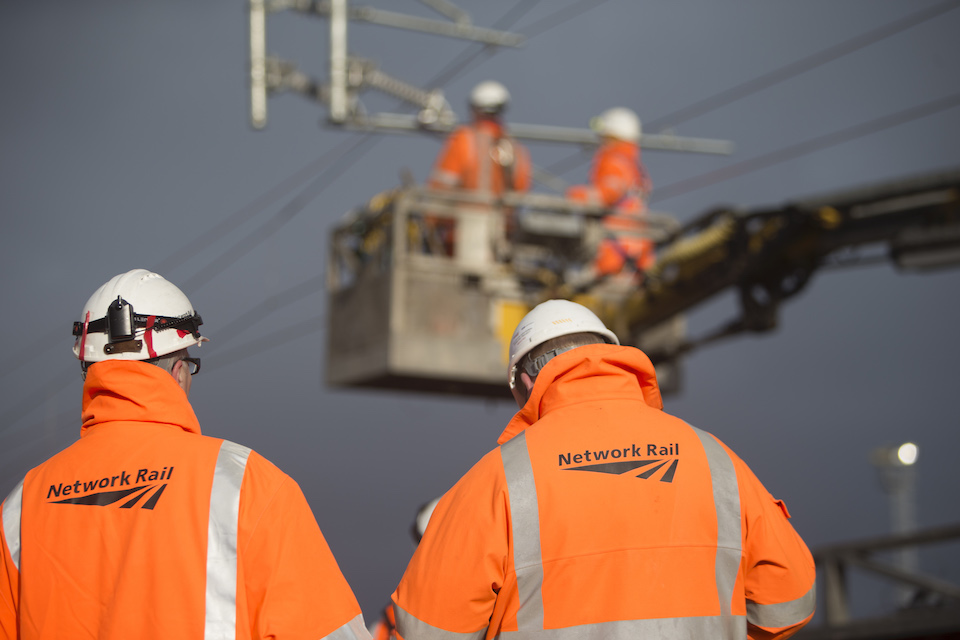Representative bodies call for UK rail electrification

Two of the most influential industry bodies in the UK have led a call for rail electrification in the UK. As part of a joint study, informed by research conducted by the Railway Industry Association, an open letter has been sent to the UK government. Addressed to the transport secretary Grant Shapps, the letter calls for extensive electrification of the UK network, facilitating freight operations and the legally mandated de-carbonisation of the economy.
Logistics UK, along with the Railway Industry Association, who together represent freight handlers and the supply chain at large, have urged the UK government to begin a rolling programme of rail electrification. The joint letter to the Transport Secretary, Grant Shapps, co-signed by more than 15 business, industry and campaign groups.
Structured programme of rail electrification
The letter follows significant research by Railway Industry Association (RIA) into why decarbonisation of the rail sector is only possible with large-scale railway electrification and how hydrogen and battery alternatives must have a role on the network but cannot act as a replacement. It is widely understood that to replace the diesel tractive effort on the UK rail freight network, traditional overhead wires will be required, with alternatives such as battery and hydrogen sufficient only for ‘last mile’ operations. However, innovative UK operators are already implementing alternative fuels with some degree of success.

“Logistics UK has consistently called for a structured programme of rail electrification to help deliver net-zero emissions by 2050 and to support further private sector investment in the UK’s rail freight sector”, said Zoe McLernon, Multi Modal Policy Manager at Logistics UK. “The latest research from RIA provides compelling evidence on the importance of electrification for both business and the environment.“ McLernon has consistently called for better vision and support for the rail industry in the light of government legislation and the declared climate emergency.
Why Rail Electrification for COP26
According to the RIA report, it will be impossible to decarbonise rail without further electrification. Their data shows from 2019 to 2020, just 251km of track was electrified in Great Britain; contrasting sharply with the required 450km a year, starting this year, which Network Rail has said is required to reach the government mandated ‘Net Zero by 2050’. There is currently no further significant construction of electrification schemes authorised in England say the RIA.

Speaking in support of the new report “Why Rail Electrification?” Darren Caplan, the Chief Executive of the Railway Industry Association, called on the UK government to support efforts to decarbonise the rail network ahead of the climate change COP26 Conference in Glasgow later this year. “The report clearly shows the rail industry will be unable to decarbonise the network without a rolling programme of electrification. As RIA has demonstrated in recent work, electrification in the UK can be delivered affordably, at up to 50 per cent the cost of some past projects, if there is a long-term, consistent, profile of work rather than the current situation of boom and bust.” The RIA has also called on electorates in parts of the UK to support rail development in regional and local elections next month
Support jobs, efficiency, economic growth
The influential list of signatories include the Rail Freight Group, the Civil Engineering Contractors Association, the Rail Delivery Group, and the Rail Safety and Standards Board. “An electrification programme would not only be beneficial to the UK’s green recovery, but would also support jobs, improve efficiency for freight operators and aide economic growth”, added McLernon. “Rail freight currently delivers around 1.7billion GPB (1.9billion euros) of economic benefits each year. It is now crucial that government acts swiftly to introduce a clear programme of electrification to ensure that goods and services can continue to move through the economy with minimal environmental impact.”
The new report, “Why Rail Electrification?” which sets out why – even with the development of clean new technologies like battery and hydrogen trains – the industry will be unable to decarbonise the rail network to the extent required without significant further electrification. The report says rail is already a low carbon method of transport, contributing just 1.4% of all transport emissions. However, the industry, including rial freight, which depends disproportionately on fossil fuel traction, will need to decarbonise further if it is to achieve the UK government’s aim of removing all diesel-only trains off the network by 2040 and the legally binding commitment to Net Zero by 2050.
You just read one of our premium articles free of charge
Want full access? Take advantage of our exclusive offer





